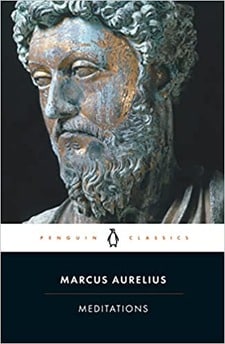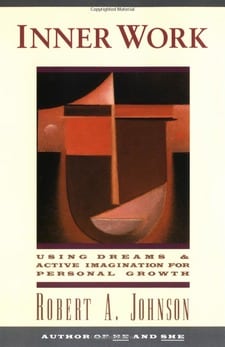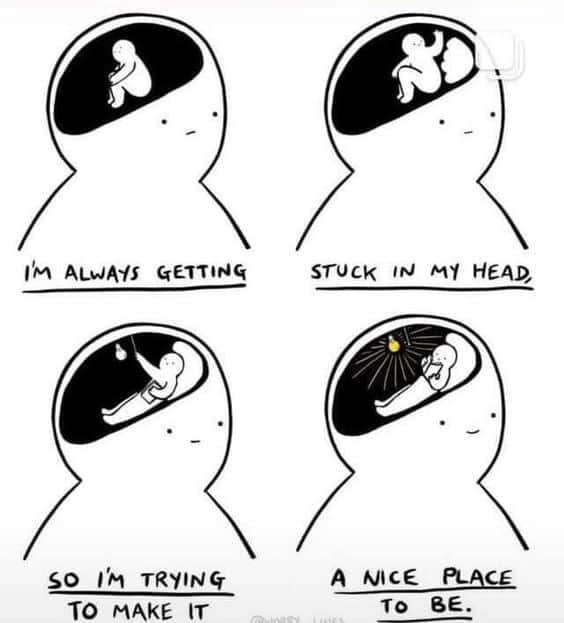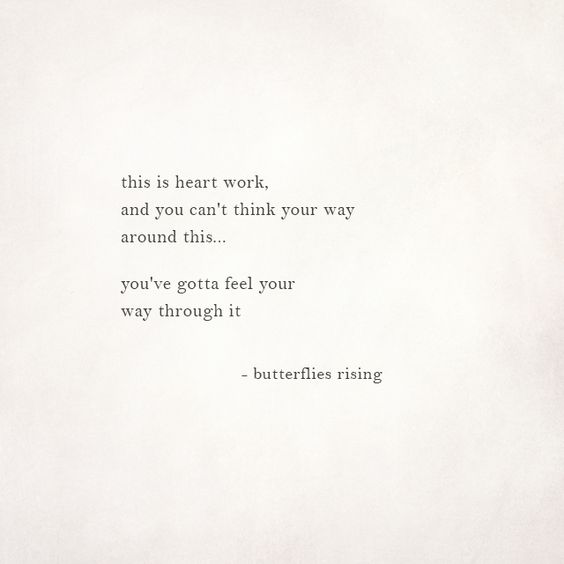“Each of us is building a life, building an edifice. Within each person the plan and the basic structure are established in a deep place in the unconscious. But we need to consult the unconscious and cooperate with it in order to realize the full potential that is built into us. And we have to face the challenges and painful changes that the process of inner growth always brings.”
Robert A. Johnson, Inner Work (Page 7)
“The unconscious manifests itself through a language of symbols. It is not only in our involuntary or compulsive behavior that we can see the unconscious. It has two natural pathways for bridging the gap and speaking to the conscious mind: One is by dreams; the other is through the imagination. Both of these are highly refined channels of communication that the psyche has developed so that the unconscious and conscious levels may speak to one another and work together.”
Robert A. Johnson, Inner Work (Page 4)
Inner Work [Book]
Book Overview: A practical four-step approach to using dreams and the imagination for a journey of inner transformation. In Inner Work, the renowned Jungian analyst offers a powerful and direct way to approach the inner world of the unconscious, often resulting in a central transformative experience. A repackaged classic by a major name in the field, Robert Johnson’s Inner Work enables us to find extraordinary strengths and resources in the hidden depths of our own subconscious.
Post(s) Inspired by this Book:
37 Robert A. Johnson Quotes from Inner Work To Convince You Dreams Aren’t Arbitrary
“Dig inside yourself. Inside there is a spring of goodness ready to gush at any moment, if you keep digging.”
Marcus Aurelius, Meditations (Page 67)
“I had always seen the world as my battlefield; I now understood that the true combat zone was my mind.”
Will Smith, Will (Page 394)
“I like making friends, I thought. I began trying to listen to and observe what was going on in my head, and a painful realization washed across me: I wasn’t enjoying being with myself. In fact, I wanted to get away from myself as fast as I could. And it dawned on me, If I don’t want to be with me, why the fuck would anybody else wanna be with me?”
Will Smith, Will (Page 375)
“We had concluded that no one can make a person happy. You can make a person smile; you can compose a moment that helps a person to feel good; you can deliver a joke that makes a person laugh; you can create an environment where a person feels safe. We can and must be helpful and kind and loving, but whether a person is happy or not is utterly out of your control. Every person must wage a solitary internal war for their own contentment.”
Will Smith, Will (Page 357)
“‘If I am more successful, I’ll be happier, and people will love me more.’ I was trying to fill an internal emotional hole with external, material achievements. Ultimately, this kind of obsession is insatiable. The more you get, the more you want, all the time never quite scratching the itch. You end up with a mind consumed by what it doesn’t have and what it didn’t get, and in a spiraling inability to enjoy what it has.”
Will Smith, Will (Page 333)
“Let’s stop lying to ourselves, saying ‘it will all be better in the future,’ because the present isn’t the problem. None of the external things are. It’s our emotions at the root of discomfort. They are within us. They are our responsibility to work on.”
Ryan Holiday, Daily Stoic Blog
“Things of themselves cannot touch the soul at all. They have no entry to the soul, and cannot turn or move it. The soul alone turns and moves itself, making all externals presented to it cohere with the judgements it thinks worthy of itself.”
Marcus Aurelius, Meditations (Page 41)
“The more comfortable you become in your own skin, the less you need to manufacture the world around you for comfort.”
Cory Muscara, Twitter
“Failure to read what is happening in another’s soul is not easily seen as a cause of unhappiness: but those who fail to attend to the motions of their own soul are necessarily unhappy.”
Marcus Aurelius, Meditations (Page 12)
“We think that perfecting the outward version of ourselves that the world sees will bring us the inner peace we want. But Socrates and the Stoics knew it was the other way around. It’s the inner work that is more likely to bring us the outward success. And more importantly, that the inner work was an end unto itself.”
Ryan Holiday, Daily Stoic Blog
Meditations [Book]

Book Overview: Written in Greek by an intellectual Roman emperor without any intention of publication, the Meditations of Marcus Aurelius offer a wide range of fascinating spiritual reflections and exercises developed as the leader struggled to understand himself and make sense of the universe. Spanning from doubt and despair to conviction and exaltation, they cover such diverse topics as the question of virtue, human rationality, the nature of the gods and the values of leadership. But while the Meditations were composed to provide personal consolation, in developing his beliefs Marcus also created one of the greatest of all works of philosophy: a series of wise and practical aphorisms that have been consulted and admired by statesmen, thinkers and ordinary readers for almost two thousand years.






